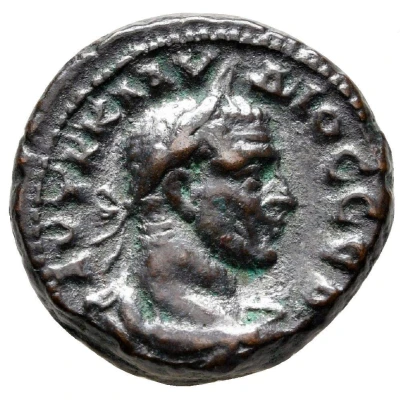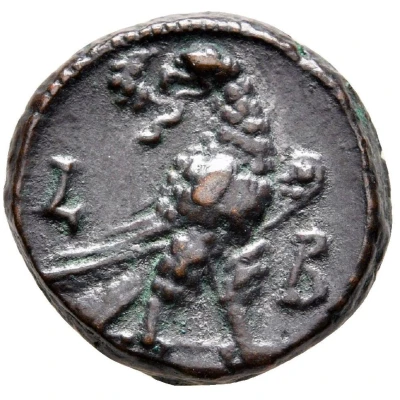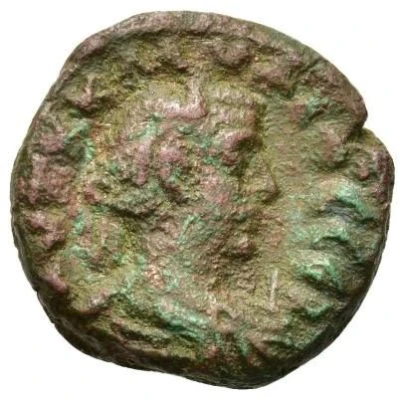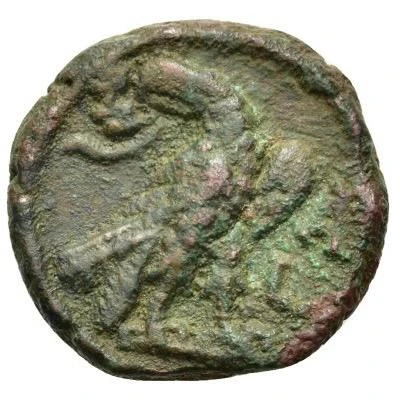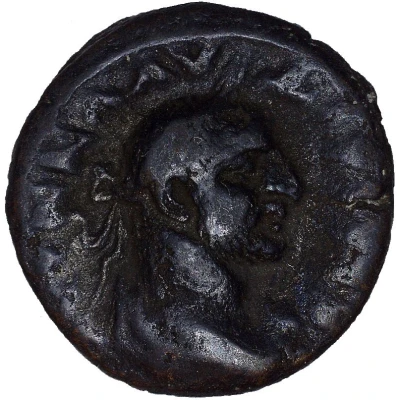
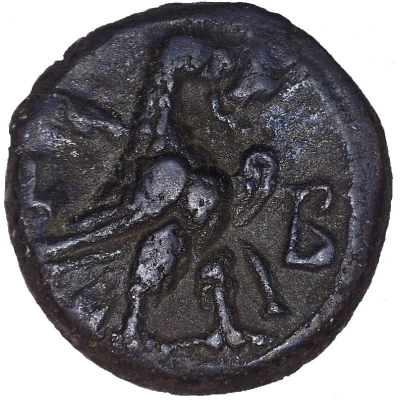

© Ringgy (CC BY)
Tetradrachm - Claudius II Alexandria, year
| Copper (copper or billon) | 9.6 g | 20 mm |
| Issuer | Alexandria (Egypt) |
|---|---|
| Emperor | Claudius II (Marcus Aurelius Claudius) (268-270) |
| Type | Standard circulation coin |
| Years | 269-270 |
| Value | Tetradrachm (4) |
| Currency | Drachm |
| Composition | Copper (copper or billon) |
| Weight | 9.6 g |
| Diameter | 20 mm |
| Thickness | 4 mm |
| Shape | Round (irregular) |
| Technique | Hammered |
| Orientation | Medal alignment ↑↑ |
| Demonetized | Yes |
| Updated | 2024-10-06 |
| Numista | N#89062 |
|---|---|
| Rarity index | 88% |
Reverse
Eagle standing right, holding wreath in beak, palm branch over shoulder
Script: Greek
Lettering: L Β
Translation: Year 2
Comment
Claudius was born 10th May 214 in Illyricum. He was in the army on the Illyrian border of the empire during the reigns of Emperors Decius, Valerian, and Gallienus.On the murder of Gallienus at Milan, Claudius was proclaimed emperor by his soldiers, September 268.
He immediately marched against Aureolus, Gallienus's rebel commander. Milan was taken, and Aureolus was executed.
Claudius went to meet the Alemanni, who had invaded Roman territory, crossing the Alps to threaten Italy itself. In late autumn of 268 he defeated them in the vicinity of Lake Garda.
He successfully fought two German tribes, the Alamanni and the Goths, that were threatening Roman provinces. For these successes, he became known as Gothicus.
Unfortunately, some of the wandering survivors of the Gothic host contracted plague, which spread to the Roman army and claimed the life of Claudius.
In 269, he campaigned against the Goths, for which he received the title 'Gothicus Maximus'.
In 270, the Goths won a partial victory at Mount Haemus in Thrace, and it was only the outbreak of severe plague that saved the Romans.
The same plague killed Claudius, at Sirmium, in August 270.
He was succeeded by his brother, Quintillus.
https://www.forumancientcoins.com/historia/coins/r5/r19420.htm
Interesting fact
One interesting fact about this coin is that it features an image of Claudius II, who was the Roman Emperor at the time of its minting, on one side, and a representation of the goddess Tyche on the other. Tyche was the patron deity of the city of Alexandria, and her depiction on the coin highlights the city's cultural and religious significance during the Roman period.
